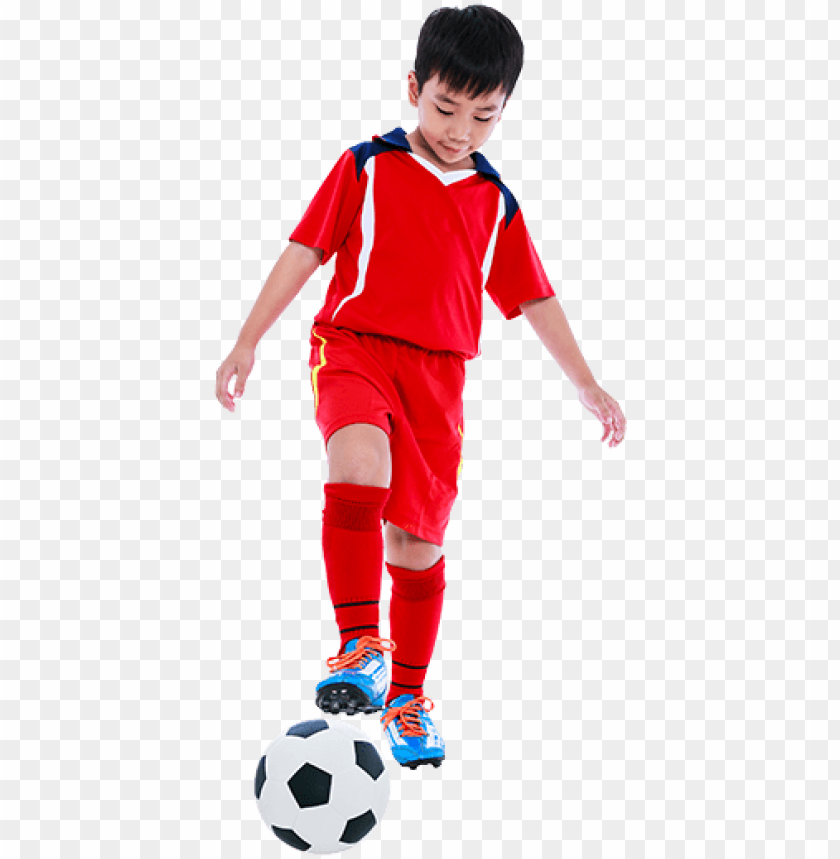
A team's success is dependent on the performance of its soccer strikers. They not only score goals, but also allow their teammates to move freely and draw the opposing defenders away. They should also have excellent stamina and speed. In the article below we'll explore some of the qualities that make for a good soccer striker.
Positional sense
A soccer striker should have a strong positional sense. A soccer striker must have a good sense of positioning. The defense will try to distract the striker by making him or her move away. The striker can exploit these weaknesses by learning to understand the vulnerabilities of the opponent.
A striker is responsible for scoring the most goals for the team. A striker must be in a position that allows him or her to score the most goals. However, the striker cannot be the sole goal scorer in a soccer game. Also, the goalie can score.
Game intelligence
This trait is critical for players in team sports like soccer. It allows a player read and adapt quickly to the game. It's believed that it's the key to elite soccer success because physical skills and coordination don't have much predictive value.

You must improve your game intelligence as a soccer player by learning from other players. One example is keeping track of who is in what area. Another example is keeping track of who is in what goalkeeper. Watching other soccer players, especially the greats, can help improve your soccer IQ.
Scoring ability
A soccer team is dependent on the goal-scoring abilities of its soccer striker. These players need to be decisive and quick with their decisions. For teammates to score, they need to be skilled in footwork and movement. High levels of confidence are a must for the best strikers.
Strikers must possess quick feet and a strong first touch. They must also have great possession of the ball skills and an acute soccer mind. They must avoid falling into the offside traps.
Stamina
Soccer players must have stamina. Stamina is a key skill for soccer players. Good training can increase stamina in both the anaerobic and aerobic energy systems. High intensity interval Training (HIIT), one of the most effective ways to increase stamina, is possible. HIIT is a workout that involves a short, intense activity followed by a period of rest.
Soccer players need to work out in order improve their stamina. A healthy diet is essential. It is important to eat a healthy diet that is high in carbohydrate, low in fat, and high in protein. This will allow them to play longer. Avoid sugary drinks, energy drinks and processed foods. Get plenty of water. Hydration can affect performance and stamina.

Quick decision-making
Soccer players must be able to quickly react to changing situations. This skill can be developed through repetition. The most efficient players on a team are the fastest. This skill can easily be learned by playing small-sided soccer. A player's ability to scan their surroundings is also important. This type of player is able to anticipate situations and make better decisions.
The game of soccer is extremely fast paced. The game of soccer is very fast-paced. A player who takes too long to make a decision can put his team at great disadvantage. Without a decision, an opponent can steal the ball easily. After an attack, a player will have difficulty recovering. Having fast-thinking teammates will increase the team's chances of maintaining possession of the ball and scoring goals.
FAQ
Where can I purchase cheap soccer equipment
Sports goods shops can often sell inexpensive soccer gear. At discount department stores, you will find soccer balls and shin guards as well as jerseys. Amazon.com and other online retailers are also options.
Which size soccer ball should you buy?
To determine how big a soccer ball you will need, measure yourself. You can measure by standing straight with your arms out in front. With a tape measure, measure your chest from the bottom of your arms to the top. This is the circumference of your body. Divide this number by 2 and multiply by 5. For example, if your chest measures 40 inches, divide 40 by 2 and multiply by five, which equals 20. That is the circumference of a sphere with a diameter of 20 inches. Using this formula, you can find the approximate size of the soccer ball you need.
What does a football attacker do?
Of all the players on the field, attackers are the best passers. They transfer the ball to the forwards and midfielders, then distribute it among other players. They are agile and fast and can score many goals in a match.
What is the role of a defender in soccer?
Defenders are usually there to defend against attackers looking for goals. Defenders try to keep opponents out of the scoring position by tackling them and blocking shots.
How can I determine if my child is ready for soccer?
As soon as children are able kick or throw a football into the air, it is time to start playing soccer. They should also have the ability to catch and run after the balls. If your child is interested in playing soccer, make sure he/she follows all safety guidelines before joining a league.
Statistics
- The word "soccer" is a British invention that British people stopped using only about 30 years ago, according to a new paper by University of Michigan professor Stefan Szymanski. (businessinsider.com)
- At the 2018 FIFA World Cup, Belgium playmaker Eden Hazard, renowned for being difficult to dispossess, set a World Cup record for successful dribbles completed in any World Cup game since 1966, with a 100% success rate in ten dribbles against Brazil.[10] (en.wikipedia.org)
- From the 1850s onward, industrial workers were increasingly likely to have Saturday afternoons off work, and so many turned to the new game of football to watch or to play. (britannica.com)
- After hosting an entertaining World Cup finals in 1994, the United States possessed some 16 million football players nationwide, up to 40 percent of whom were female. (britannica.com)
- the estimated cumulative television audience for the 2006 World Cup in Germany was 26.2 billion, an average of 409 million viewers per match." (en.wikipedia.org)
External Links
How To
How to play soccer
Soccer requires that you have excellent skills like dribbling and passing, shooting, heading, tackling and so on. You should always try to improve these skills. The most important thing is to practice your skills daily. Follow these steps to learn how you can play soccer well.
-
Practice dribbling. Do some practice on the field. When you start practicing dribbling make sure that you do it in short bursts of 5 minutes at a time. Once you feel comfortable with dribbling, increase the duration to 10 minutes. Keep practicing this technique daily.
-
Practice passing. Practice passing the ball between you and your opponent. You must pass the ball correctly to the person with the space. Do not throw long passes. It's much better to direct the ball to the player who is in need. This will help you save energy as well as keep your body warm.
-
Practice heading. Heading requires you to place the ball perfectly into the net. Before you can achieve this goal, it is important to practice getting in the right position. Standing directly in front of the target, face the goal. Next, bend forward and place the ball under you chin. Next, raise the head and look towards what is in the upper left corner. Your eyes should be looking straight ahead. Stand up straight and let the ball go.
-
Do some tackling. Tackling can be one of the most difficult skills to master. This skill can make football more exciting when it is mastered. First, make sure you tackle with your chest to shoulder and not lower. Be sure to keep your arms in line with your body. It is better to tackle in smaller groups of two people. One player serves as the defender, while the other acts as an attacker. Once the attacker has passed the defender, the attacker must be tackled immediately.
-
Shooting is something you should practice. You need to practice shooting. Find a place where you can shoot comfortably (e.g. Next to the goal. Now, you need to focus on your form. The ball should be held between your hands. Toes point up, bend your knees. Make a circular motion with your wrist to shoot the ball. Your goal should be at the bottom right corner.
-
Run. Running is another skill you need to learn. Begin slowly, then increase speed. Running should not be used for attacking, it can cause injury to your muscles. Instead, instead run toward the goal to support your teammates.
-
Practice kicking. Kicking is one of the easiest skills to learn but also one of the toughest. In order to kick accurately, you need to develop strength in your legs and core. You can place your feet together and lift one foot at a stretch. Slowly kick the ball towards the net using only your heels.
-
Keep practicing dribbling. This skill is crucial to being a great player. Dribbling allows you to control the pace of the game. It allows you to set the pace. You must be consistent in your dribbling. It is important to not change the way you dribble each day. Stick to what works for you.
-
Do not practice kicks. Free kicks are usually delivered after a foul or when the goalkeeper commits a mistake. Free kicks let you score goals without even having to play the full match. Try aiming at the corners of the goal. Remember to use your instep and your heel.
-
Practice defending. Positioning is everything when you defend. Playing defense means staying close to your opponent. Try to stop him scoring by blocking his path if you receive the ball. Always look out for the safety of your teammate.